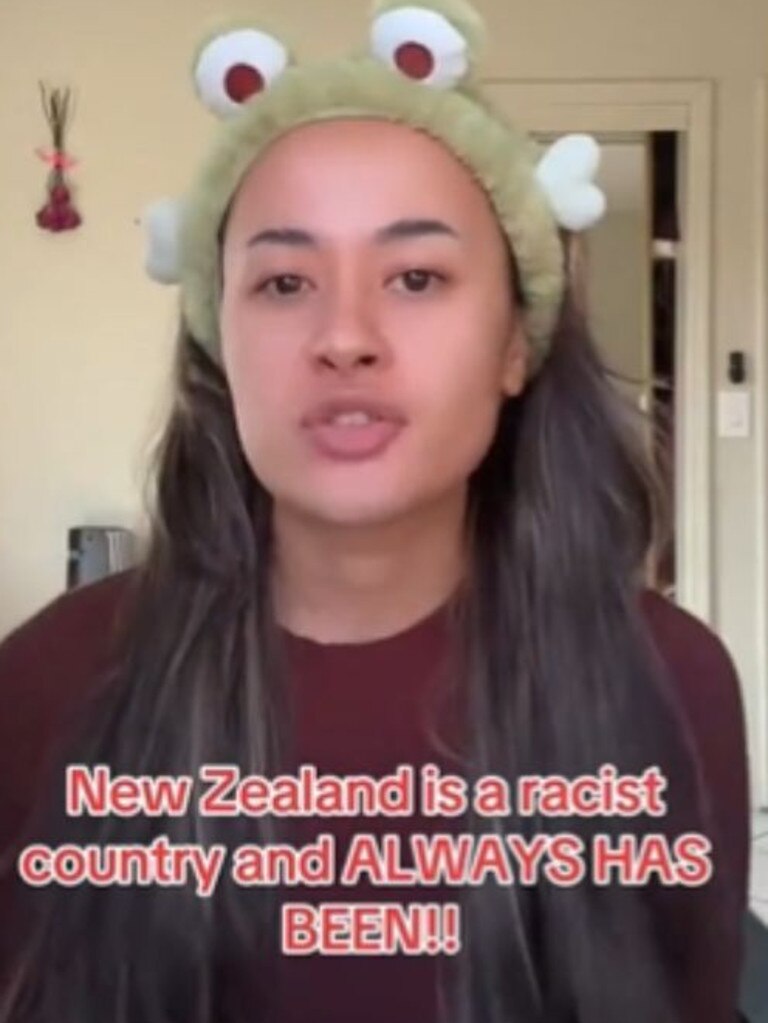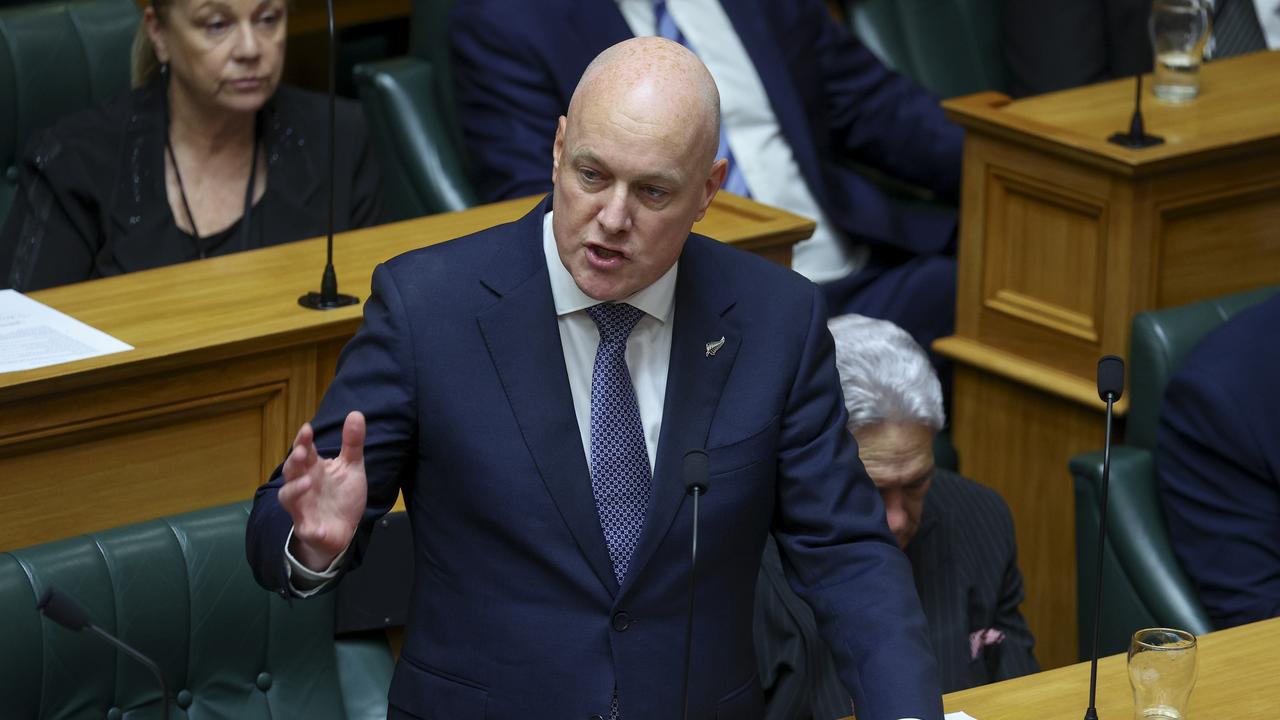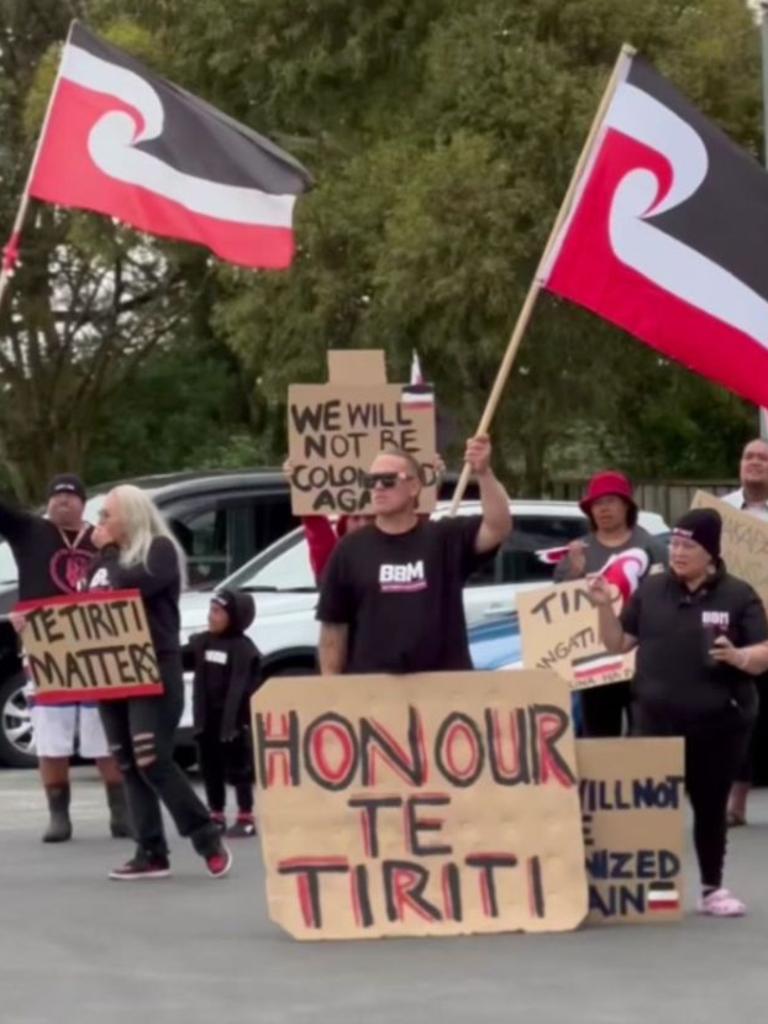‘New Zealand is a racist country and always has been’: Thousands accuse new Kiwi government of ‘anti-Māori’ policies
A Māori woman joined thousands ripping into New Zealand’s new conservative government for its ‘racist’ and ‘anti-Māori’ policies.
Tensions are rising in New Zealand after the new conservative government announced plans to reverse policies that directly affect Indigenous MÄori rights.
Thousands of protesters rallied across the country this week against what they describe as “racist” and “anti-MÄori” policies from Prime Minister Chris Luxon’s newly-sworn in conservative coalition.
The policies have incensed one MÄori woman so much, she took to social media to declare her home country has “always” been a “racist country”.


“If you don’t know, the New Zealand government is trying to either get rid of or silence MÄori people,” Mere Wilson said in a TikTok video which has amassed more than 58,000 views.
“Removing Te Reo MÄori from public spaces, removing Te Reo MÄori from schools, making facial tattoos illegal from public spaces,” she continued.
“This isn’t anything new. The New Zealand government has constantly, for decades, been trying to silence and get rid of the MÄori culture from public spaces.”
Ms Wilson said the rights that her ancestors had to fight for were “endangered of being erased” by the current government’s policies.

The National Party-led government – which formed a coalition with the right-wing minorities New Zealand First and ACT Party – announced plans to repeal or review a raft of policies that affect and protect MÄori people.
Among them is a review of the country’s founding document – Te Tiriti o Waitangi, or The Treaty of Waitangi – and potentially change how it affects modern laws.
The Treaty was signed by British colonists and MÄori rangatira (chiefs) in 1840 and stressed the protection of MÄori rights, including their right to autonomy over their own affairs.
Charles Sturt University professor of political science Dominic O’Sullivani said the Treaty was considered a “serious and unbreakable promise”.
Although this proposed review is a step back from ACT Party’s radical election promise to call a referendum to redefine the principles of te Tiriti, Professor O’Sullivan says it could reverse decades of bipartisan support for increasing the Treaty’s “influence in public life”.
“Over the past 50 years, the [Treaty] principles have been developed by parliament, the courts and the Waitangi Tribunal,” he wrote in The Conversation.
“The principles include partnership, reciprocity, mutual benefit, active protection of MÄori interests, and redress for past wrongs.”
Professor O’Sullivan said a key feature of the Treaty was that “people were given reasons to believe the government would not interfere with a MÄori right to be MÄori.”

Beyond reviewing the Treaty, the coalition government also wants to change the names of some departments from MÄori to English, stop “race-based” policies, and minimise use of MÄori language (Te Reo MÄori) in the public service.
The government is also working on stopping public servants from getting extra pay for being proficient in Te Reo MÄori, Radio New Zealand (RNZ) reports.
It also wants to abolish the MÄori Health Authority, which was established in 2022 to use MÄori expertise to ensure the New Zealand health system met MÄori needs.
In November the government also announced it would backflip on New Zealand’s world-leading smoking ban to fund income tax cuts – a move that was widely criticised as being particularly detrimental to MÄori people, who have higher smoking rates than the general population.
In response to the policies, thousands of New Zealanders rallied in protests this week, which coincided with the first day of the new parliament, when MPs were being sworn in.
Protesters marched in cities across New Zealand carrying signs reading “Honour the Treaty” and “Te Reo belongs here”, waving MÄori flags, and chanting, singing in Te Reo.
A group in Wellington, the capital, marched through the city before rallying in front of parliament.


The actions were led by the minority Te PÄti MÄori (the MÄori Party), whose six MPs broke protocol and swore allegiance to their mokopuna (grandchildren) before swearing allegiance to Kings Charles III, The Guardian reports.
Te PÄti MÄori co-leader Rawiri Waititi led criticism of the coalition’s policies, saying they will take New Zealand “back to the 1800s”.
Ousted former Prime Minister Chris Hipkins also criticised coalition, saying it was “disappointing” it wants to wind back decades of reconciliation with MÄori people, RNZ reports.
Prime Minister Luxon, however, said he thought the protests were “unfair” for a week-old government. He suggested it be given more time to deliver better outcomes for MÄori and all New Zealanders.
“I mean, Te PÄti MÄori are free to activate their supporters and as long as they have a protest that’s lawful, respectful and peaceful that’s fine,” Mr Luxon said.
“I think it’s pretty unfair to be honest, I think the reality is we’re in government for a week, we are going to get things going – and for MÄori and for non-MÄori – and that’s what our focus is going to be.
“We’re ready to go but we are determined that MÄori are going to do better under our government than they have in the last six years.”


But Ms Wilson’s TikTok video echoed the sentiments of the thousands of MÄori speaking out and demonstrating against the policies, saying all New Zealanders have to “fight back” from the risk of Indigenous culture “being erased”.
“Guess what, you guys are messing with the wrong people,” she said to the government.
“They have tried to silence our ancestors. They tried to silence our grandparents, our parents, and now they’re trying to do the same sh*t to us.
“If they get what they want Te Reo MÄori will be a dead language three generations from now.
“If we’re not doing it for us, we’ve gotta do it for our mokopunas [grandchildren], man.”





